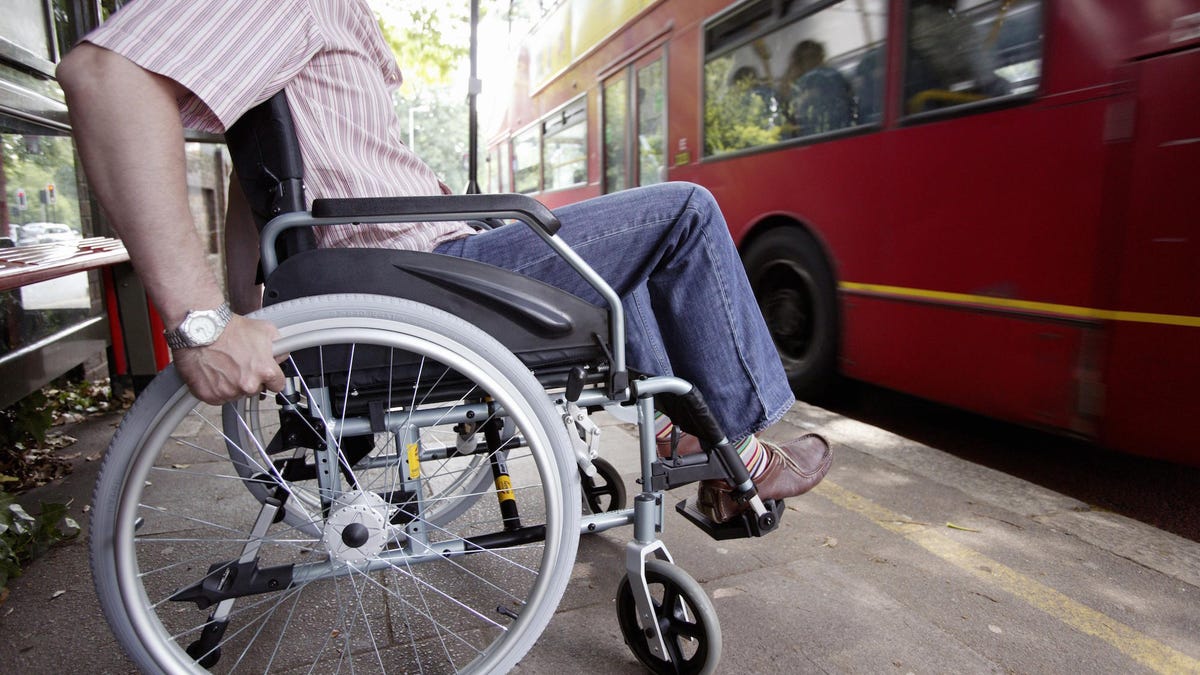Lyft fails to provide wheelchair access, lawsuit says
Disability rights advocates sue the ride-hailing company for discriminating against people in wheelchairs. Last month they sued Uber.

Disability advocates say people in wheelchairs should have the same access to ride-hailing services as everyone else.
First Uber was sued for allegedly discriminating against people in wheelchairs, and now Lyft is getting the same treatment.
A coalition of disability rights groups and individuals filed a lawsuit against San Francisco-based Lyft in California's Alameda County Superior Court on Tuesday, saying the ride-hailing service fails to make wheelchair-accessible vehicles available to people with disabilities in the Bay Area. That constitutes discrimination, the groups said.
"We're taking on both companies, since we think it's crucial to transform the entire ride sharing industry in order to best affect widespread change," said Rebecca Williford, senior staff attorney for the nonprofit Disability Rights Advocates, one of the groups in the coalition.
As ride-hailing has boomed over the past five years, so has scrutiny of the service. Under California's anti-discrimination laws, transportation services, like taxi companies and buses, are legally required to accommodate disabled people. Disability rights groups say these same rules should apply to ride-hailing companies.
The two lawsuits against Uber and Lyft aren't the first for alleged discrimination against people with disabilities. Similar suits have been filed in New York, Texas and Illinois. The suit against Uber, which was filed in February, is still pending -- as are most of the other cases.
For its part, Lyft says it has a strong record of working with disability groups to expand transportation options for passengers. It has partnerships with the National Federation for the Blind and the National Association of the Deaf. A Lyft spokesman said the company also provides drivers with enhanced wheelchair-accessible vehicles in certain US cities and that it's "actively exploring ways to expand them nationwide."
"There is no doubt that those living with disabilities face significant transportation challenges -- challenges that have existed for decades," the spokesman said. "Since Lyft was founded in 2012, we have sought to increase access to transportation around the country for underserved populations, including those living with disabilities."
The coalition that filed the lawsuit this week said Lyft doesn't provide wheelchair-accessible transportation at all in the Bay Area. The groups aren't seeking monetary damages, but rather equal access to Lyft for wheelchair users.
"If Lyft would provide wheelchair accessible vehicles, I could be spontaneous and more mobile in the community, just like everyone else," said Tara Ayres, a plaintiff in the lawsuit who uses a motorized wheelchair. "It is devastating and disheartening that in this day and age, Lyft has completely excluded people like me."
Virtual reality 101: CNET tells you everything you need to know about VR.
Batteries Not Included: The CNET team reminds us why tech is cool.

